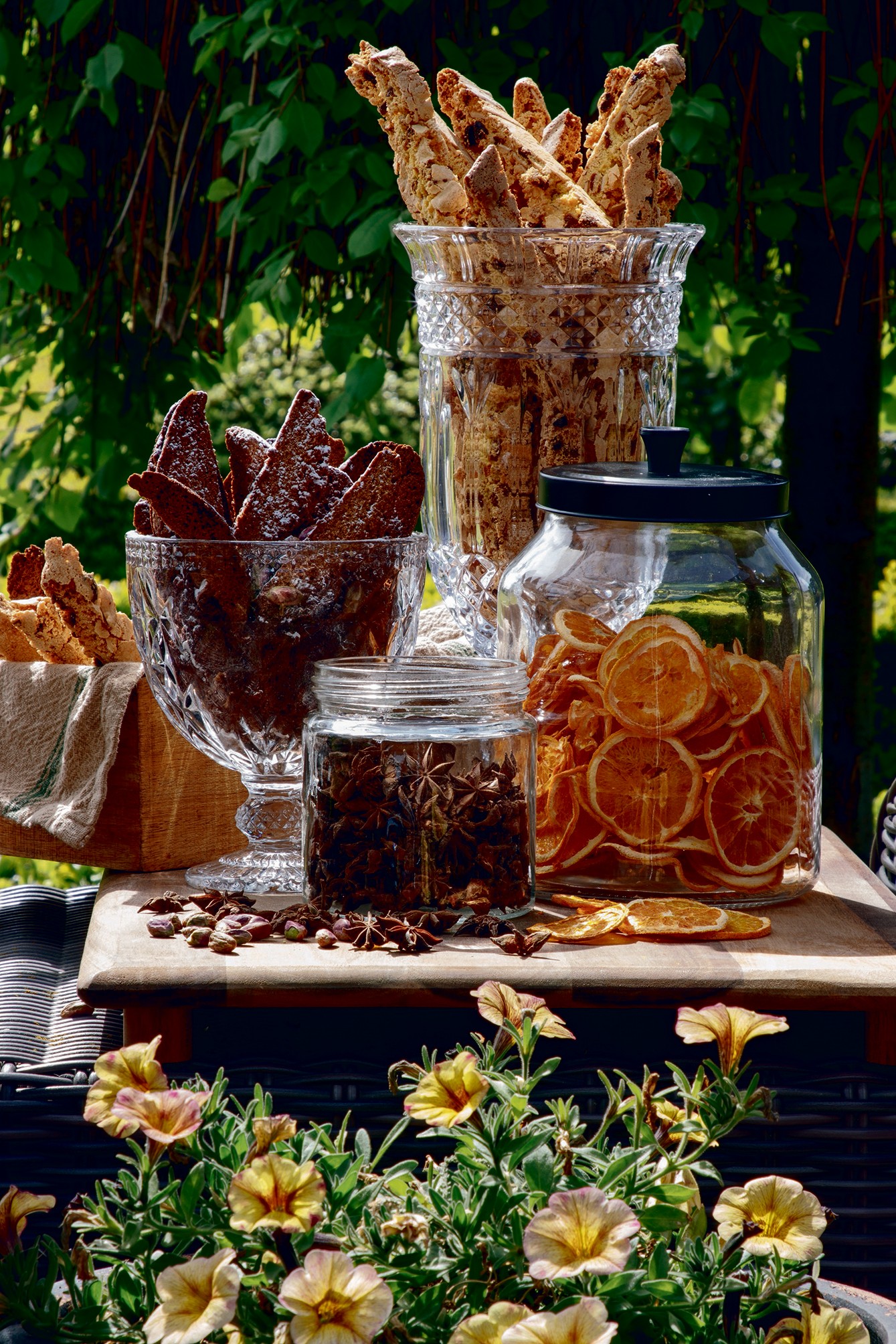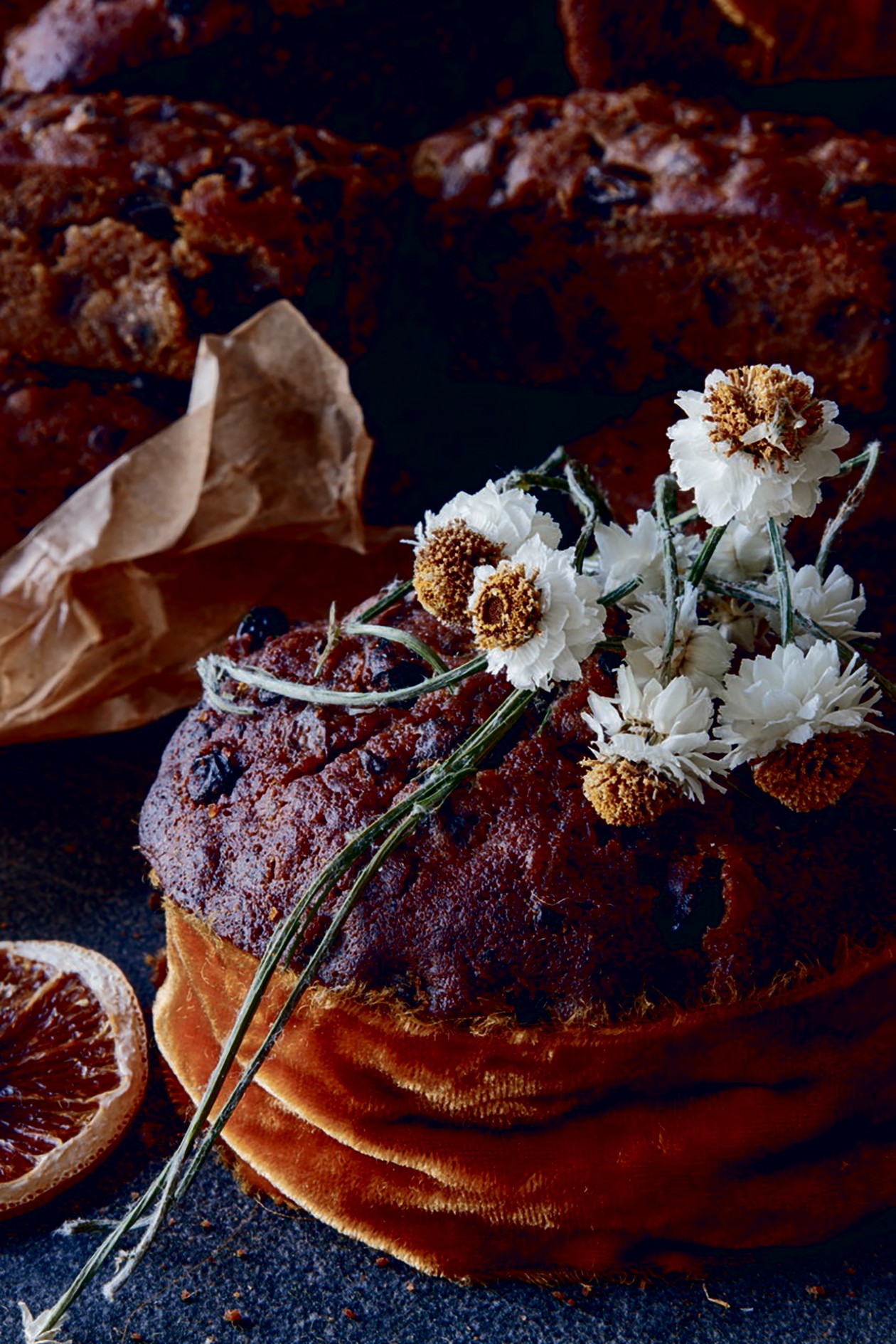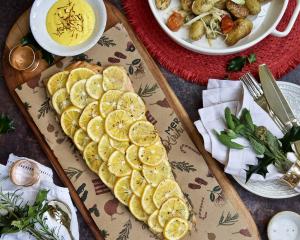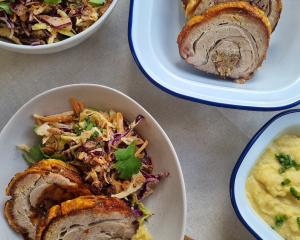

So she collects material throughout the year for the festive season, finding the quieter palette offers a moment of contrast.
Williams photographed, styled and wrote her latest book Floral Abundance over months in her flower field, garden and studio, sharing her favourite flowers from vintage roses to wildflowers, floral arrangements, styled spaces and recipes inspired by her work.
‘‘This book grew from that space - opening the gate, gathering the flowers, setting the table and making room for others. It’s not about doing more but noticing more. Not about perfection, but presence. And always, finding joy in the making.’’

Biscotti
These take a little time, as they are double baked, but they last for weeks and look beautiful displayed in jars or vases on the bench, ready for all the Christmas visitors. They taste delicious.
I’ve made biscotti for years and often adapt the base recipe to suit the season, adding dried apricots, currants, sliced almonds, pistachios or whatever I have on hand.
While the cranberry version has long been my favourite, the spiced gingerbread variation was inspired by my creative baking friend Sarah. Her bold use of spice had me dreaming up another Christmas version.
MAKES: 1 log, about 20 slices
Cranberry and Orange Biscotti
180g caster sugar
2 eggs, plus 1 egg yolk
250g plain flour
½ tsp baking powder
½ cup sliced almonds
¹⁄₃ cup dried cranberries
1 tsp finely grated orange zest
Spiced Gingerbread Biscotti
180g brown sugar
2 eggs, plus 1 egg yolk
250g plain flour
1 tsp baking powder
1½ tsp ground ginger
1 tsp cinnamon
½ tsp nutmeg
¼ tsp ground cloves
Pinch of salt
Method
Preheat the oven to 170°C fan bake. Line a baking tray with baking paper.
For either flavour, beat the sugar and eggs until light and creamy.
Stir in remaining ingredients and mix until a soft dough forms.
Transfer dough to the prepared tray and, using wet hands, shape into a log about 3cm high and 8cm wide.
Bake for 25-30 mins or until lightly golden and just firm.
Remove from the oven and reduce oven temperature to 140°C.
Cool biscotti log on the tray for 10 minutes.
Use a serrated knife to slice into 1cm pieces. Lay flat and bake for another 15 minutes, turning once, until dry and crisp.
Cool completely before storing in airtight jars or wrapping as gifts.

Rhubarb and strawberry swirl
When the garden is heaving with berries and the rhubarb is ready for picking, I’m always looking for fast and simple ways to serve them.
This parfait is a beautiful way to enjoy the height of the season, whether served as a refreshing breakfast or a light, elegant dessert.
The sweet strawberries mellow the tart rhubarb, and the lemon and ginger add a subtle warmth that lifts the fruit.
I love layering it in individual glasses with thick Greek or coconut yoghurt for something that feels generous and wholesome.
MAKES: 2 CUPS
2 cups chopped rhubarb
1½ cups hulled and halved strawberries
¼ cup caster sugar (adjust to taste)
2 thin slices of lemon
½ tsp finely grated fresh ginger
Greek yoghurt or coconut yoghurt, to serve
Method
Make the compote: Put the rhubarb, strawberries, sugar, lemon slices and ginger in a saucepan. Cook gently over medium heat for 10-15 minutes, stirring occasionally, until the fruit softens and the mixture becomes jammy.
Remove the lemon slices and allow the compote to cool completely.
Assemble the parfaits: In a glass or jar, layer spoonfulls of yoghurt with generous swirls of the rhubarb-strawberry compote. Repeat the layers, finishing with a layer of compote on top.
Serve or store: Serve immediately or chill for a day in the fridge. These also make a wonderful picnic offering when packed into lidded jars. The compote itself will last up to a week in a sealed container in the fridge or in the freezer for three months.

Mini blackcurrant Christmas cakes
This is my go-to Christmas cake recipe, developed over years of tweaking and testing. I often bake these in mini loaf tins; perfect for gifting or serving as individual slices at festive gatherings. The house smells sublime while they bake, and I always tie them up with beautiful ribbon for that final touch.
If time allows, I soak the fruit overnight, but many times I’ve only soaked for a couple of hours and they still turn out beautifully. You can skip the alcohol if you prefer; blackcurrant syrup makes a lovely alternative. In the photos, I’ve decorated some cakes with raisins I made by drying bunches of grapes in the dehydrator.
500g currants
500g sultanas
500g raisins
2 Tbsp brandy or rum (or blackcurrant syrup)
500g butter, softened
350g brown sugar
8 eggs
1 Tbsp golden syrup
4 cups standard flour
5 Tbsp blackcurrant jam
1 tsp baking powder
1 tsp baking soda
½ tsp salt
2 tsp mixed spice
1½ tsp cinnamon
2 Tbsp chopped walnuts (optional)
Method
Place the dried fruit in a large saucepan, cover with water, and add brandy, rum or syrup. Bring to the boil and simmer for 5 minutes. Drain well, allow to cool, then cover and leave to stand overnight if possible or at least for a few hours.

Beat the butter and brown sugar together until light and creamy.
Add the eggs one at a time, beating well after each addition, then mix in the golden syrup.
In a separate bowl (I use the saucepan I soaked the fruit in), coat the fruit mixture with 1 cup of the flour.
Add the remaining dry ingredients to the batter and gently fold to combine.
Fold in the flour-coated fruit, followed by the blackcurrant jam.
Spoon the mixture into prepared tins.
Bake mini cakes for around 1¼ hours or until a skewer inserted comes out clean. Bake a large cake for 3½ hours or until a skewer inserted comes out clean.
The mini cakes will keep for a couple of weeks in an airtight container, and a large cake for several months. The flavour deepens with time, but the mini versions are just as delicious straight away.












